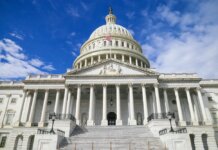Mel Watt, director of the Federal Housing Finance Agency (FHFA), made one thing abundantly clear in his speech before Congress on Tuesday: Housing finance reform needs to happen soon.
“While many reforms of the enterprises’ business models and their operations have been accomplished through conservatorship, FHFA knows probably better than anyone that these conservatorships are not sustainable,” Watt said. “We also know that housing finance reform will involve many tough decisions and steps that go well beyond the reforms made in conservatorship.”
Watt emphasized, as he has many times previously, that “it is the role of Congress, not FHFA, to make these tough decisions that chart the path out of conservatorship and to the future housing finance system.”
Among the major decisions Congress will need to make is how much backing, if any, the federal government should provide, and in what form, and what the process should be for transitioning Fannie and Freddie back to the private sector.
Congress will also need to consider what roles, if any, the enterprises should play in the reformed housing finance system, as well as how they will be structured, organizationally.
Yet another major decision Congress will need to make is how the enterprises will be regulated after they are transitioned back to the private sector.
Watt pointed out that with all of the administrative changes and reforms the GSEs have seen during the past nine years, they barely resemble the companies that they once were.
Although they are on much more sound footing, financially, the incremental drawdown of their taxpayer buffer – which is to be reduced to zero by Jan. 1, 2018 – means there is greater risk of the need for a taxpayer bailout.
“The challenge is that additional draws of taxpayer support would reduce the amount of taxpayer backing available to the enterprises under the PSPAs and the foreseeable risk that the uncertainty associated with such draws or from the reduction in committed taxpayer backing could adversely impact the housing finance market,” Watt said in his speech. “This challenge is significantly greater today than it was last year and will continue to increase unless it is addressed.”
Watt pointed out that as of last year each enterprise had a $1.2 billion buffer under the terms of the PSPAs. But once that is drawn down to zero, “neither enterprise will have the ability to weather any loss it experiences in any quarter without drawing further on taxpayer support.”
In addition, the GSEs have had to weather some fluctuations in their portfolios that they don’t normally see. Although loan performance is at an all time high, factors such as interest rate volatility, the accounting treatment of derivatives used to hedge risks, reduced income from declining retained portfolios, reduced revenue from the increasing volume of credit risk transfers, and regulatory changes have combined to drive down revenues and drive up operating costs.
“We also know that a short-term consequence of corporate tax reform would be a reduction in the value of the enterprises’ deferred tax assets, which would result in short-term, non-credit related losses to the enterprises,” Watt said. “The greater the reduction in the corporate tax rate, the greater the short-term losses to the enterprises would be.”
“In addition to the regular and on-going prospect of non-credit related losses, even minor housing market disruptions, natural disasters like hurricanes, or short periods of distress in the economy could also cause credit-related losses to the Enterprises in a given quarter,” he added.
Watt said the GSEs, like any other business, “need some kind of buffer to shield against short-term operating losses.”
“In fact, it is especially irresponsible for the enterprises not to have such a limited buffer because a loss in any quarter would result in an additional draw of taxpayer support and reduce the fixed dollar commitment the Treasury Department has made to support the enterprises,” he said. “We reasonably foresee that this could erode investor confidence. This could stifle liquidity in the mortgage-backed securities market and could increase the cost of mortgage credit for borrowers.
“As I mentioned at the outset, FHFA has explicit statutory obligations to ensure that each Enterprise ‘operates in a safe and sound manner’ and fosters ‘liquid, efficient, competitive, and resilient national housing finance markets.’ To ensure that we meet these obligations, we cannot risk the loss of investor confidence. It would, therefore, be a serious misconception for members of this committee, or for anyone else, to consider any actions FHFA may take as conservator to avoid additional draws of taxpayer support either as interference with the prerogatives of Congress, as an effort to influence the outcome of housing finance reform, or as a step toward recap and release. FHFA’s actions would be taken solely to avoid a draw during conservatorship.”










